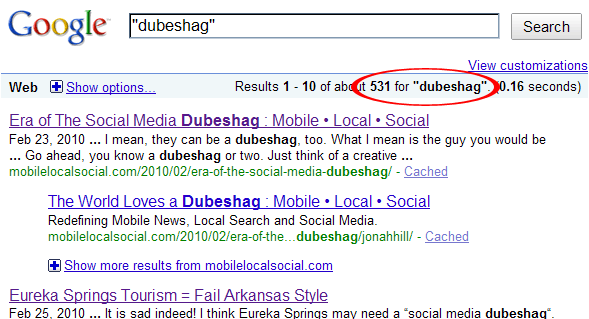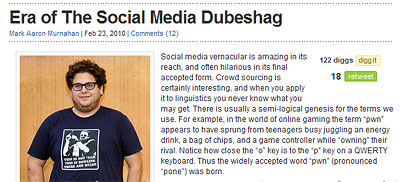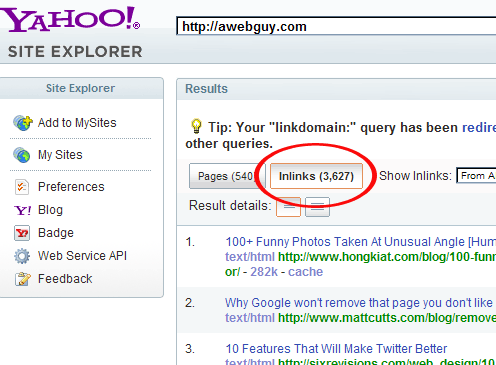
Don’t get confused just yet if you are not in the fields of sales or marketing. This should help to get your thoughts in the right place, too.
Sales and Marketing Are Not The Same!
I want to get this point clear first. Sales and marketing are so often intertwined that some people just look at them as the same thing. Please pay close attention. Sales and Marketing are not the same thing!
People in the fields of sales and marketing often realize this, but even they will get this mixed up a lot of times. Sure, the two disciplines of selling and marketing both have the similar focus of driving more dollars into your pocket with super-fantastic return on investment (you know, ROI). If you seek the definitions in many places, you may even find these two terms to be very similar. The truth is that they are different … they are vertical, but not the same. I can tell you that many salespeople know a similar amount about marketing analytics as their marketing counterpart knows about being bitten by that dog that answered the door on the last sales call.
Some people have called me a great salesman. They clearly missed something, because I actually kind of stink as a salesman in some ways. I give them the proof they want, but I am not about to grovel to the lowest bidder … that is just not my style. If I have to ask somebody to buy what I do, I consider it a failure in my marketing. This is because if the marketing is done right, the sale should be nothing but the fun part. Really, if somebody wants a big sales pitch, I just tell them to get a pen handy so I can have them call some of my customers … or even better, read more of my blog.
So argue if you must (that is why I allow your comments), but let us look at this as Internet sales being when somebody clicks your “buy” button or rings your phone, while marketing involves the sequence of events that led up to that wonderful (huge beam of light coming from the sky and angels singing) click that made your cash register ding.
Vertical Market? Guard your Wallet!
I do not like those industry terms people toss around just to sound smart or to throw the customer off long enough to grab their wallet. I have made fun of this in the past, because it is often designed to obscure the message just enough to distract a smart and hard working person who just doesn’t have a reason to know everything about cytology, acetaldehyde dehydrogenase, or how to bring more customers to their business.
If you are not a marketing person, you may not understand a vertical market compared to a horizontal market, or a skazmodic market. OK, I made that last one (skazmodic) up just for fun. You are not expected to know everything about marketing. Seriously, nobody knows everything about marketing, and the majority of the world’s population has another discipline to focus on. Should a dentist know as much about marketing as a marketer knows about dentistry? Not at all, but I can tell you that either of them is just as important in whether you eat or not. Without good marketing, most of what you know in this world would look a whole lot different.
So you may ask, what is a vertical market? Let me break the term “vertical market” down for you. If you are selling fishing lures, it is a vertical of fishing supplies, which is a vertical of outdoor sports. Other vertical markets are camping supplies, and hunting, but fishing lures will probably never be a part of aircraft repair (and if so, please choose a different airline).
Wikipedia includes the description of a vertical market as follows:
“The activities of participants within any given vertical market are typically similar in that they aim at solving the same or similar problems. These markets are typically competitive, due to the overlapping focuses of the products and services that are provided to the customers.”
Love Your Vertical Market … I Do!
In the SEO profession or in any market, I suggest falling in love with your vertical market. Get to know this market and it will not take very long to realize that your vertical market is chock full of mutually-beneficial assets. With this considered I use SEO as my example. Surely you can see how SEO is a vertical of website design, web development, web hosting, technology, marketing, advertising, and more. These are markets for the SEO professional to consider as their friends. Yes, vertical markets are your friends! Do not mistake this, because if you do it will hurt your bottom line whether you sell SEO / Internet marketing, fishing lures, or potato chips.
Any marketer worth the water they are made of should be highly aware of the vertical markets of their clients. Sadly for marketers, as so many marketers seem to be fighting for the same dollars, they forget about their own vertical market. For example, I am a search engine optimizer (SEO), but if you think that means I do not work very closely with other SEO, you must think I am totally stupid. These folks are my closest allies, and often my best clients. That is because as with any industry, we each have specific skills and when we put those skills together, we get a whole lot more accomplished. Digg.com is really not a huge piece of my own personal work, but you can bet that I know a whole bunch of people to who leverage it massively. On the other hand, I have somewhat of a whacky way of producing content with massive appeal. I mean, I produce really great results with things I come up with after a gallon of coffee and a pack of cigarettes. I do all of the things an SEO does. I create content, I am a programmer of about every known language, I have wicked skills with incoming link production, I am highly active in a squillion social media venues, I write for a good handful of blogs, and so many other things. So am I out to grab up the whole market by myself? Heck no! Not at all, because the more meat on the bone for those friendly competitors, the more food is on my table, too.
This, my friends, is vertical marketing at its best. Never think you are so amazing that you should try to do it all by yourself. The best SEO people know where their marketing talent lies, just the way the heart surgeon knows that he doesn’t want to perform vasectomies.
Horizontal Market … Oh, Beautiful Sunrise!
If the sun rises with your horizontal market, there are still some pretty huge things to consider. If you are trying to sell your product or service to anybody and everybody, you do so at your own demise. Trust me … no wait … I hate that term, because it implies that I have been lying to you all along. Don’t trust me … just go find out for yourself how miserably you will fail at trying to reach the hundreds of millions of people who desperately need what you offer if you can just tell them all about it. Let me know how that went after you spend hundreds of squillions of dollars on that campaign. Just be sure you set a couple squillion aside for when you are ready to do it the right way.
Consider the massive potential customer base of a potato chip company. They must have a really easy marketing plan. All they have to do is tell everybody who eats potato chips how good their product is, right? Wrong! If this was the case, you would probably never see a potato chip company advertising that their product is fat-free, in earth-friendly packaging, cheesier than the rest, low salt, in a nice can so the chips don’t get broken, or any of the other things that segment their market based on targeted desires.
To the SEO / Internet marketing people reading this:
Let’s think about that vertical market and start working together.
To the rest of you:
Call me right now so I can get my vertical market to talking about targeted reasons that your potato chips taste so amazing.
Wow, did you see that coming? I have something that anybody with something to market needs, but I am calling my vertical market to action. It is fancy how that works, isn’t it?



